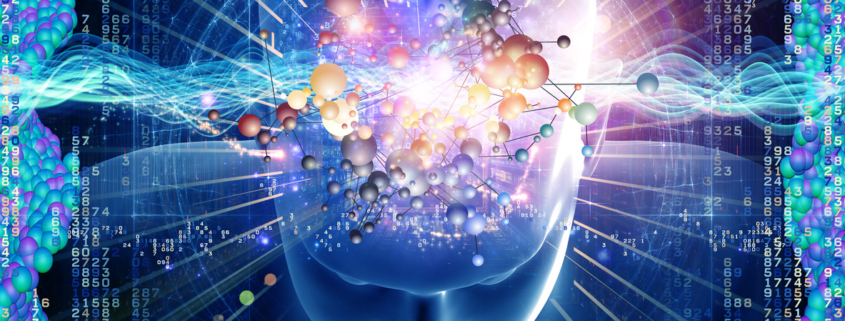Mysteries of Depression: How Ketamine Infusion Therapy Offers Hope
Depression is a complex and debilitating condition that affects millions of people worldwide. It doesn’t just impact one’s mood; it can alter the very structure and function of the brain. The mysteries of depression have been studied for decades. Understanding these changes is crucial in finding effective treatments. One promising therapy that has emerged in recent years is Ketamine Infusion Therapy, offering hope to those who have found little relief from traditional treatments.
The Brain in Depression
To comprehend how Ketamine Infusion Therapy works, it’s essential to grasp the neurological underpinnings of depression. Numerous studies have shown that depression is associated with structural and functional alterations in various brain regions, including the prefrontal cortex, hippocampus, and amygdala. Complex to say the least, and only adding to the mysteries of depression.
In individuals with depression, these brain regions often exhibit reduced volume, altered connectivity, and dysregulated neurotransmitter systems, particularly those involving serotonin, norepinephrine, and dopamine. These changes contribute to the hallmark symptoms of depression, such as low mood, anhedonia (loss of interest or pleasure), and cognitive impairments.
The Promise of Ketamine Infusion Therapy
Ketamine, primarily known as a dissociative anesthetic, has gained attention for its rapid and robust antidepressant effects. Unlike traditional antidepressants, which may take weeks or even months to alleviate symptoms, ketamine can produce significant improvements within hours or days, making it a potential lifeline for individuals in acute distress or those who have not responded to other treatments.
But how does ketamine work its magic in the brain? Research suggests that its antidepressant effects are mediated through several mechanisms, including:
-
Glutamate Modulation:
Ketamine is an N-methyl-D-aspartate (NMDA) receptor antagonist, which leads to increased glutamate release. Glutamate is the brain’s primary excitatory neurotransmitter and plays a crucial role in synaptic plasticity, the process by which neural connections are formed and strengthened. By enhancing glutamate transmission, ketamine promotes the growth of new synapses and restores neuronal connectivity disrupted by depression.
-
Neurotrophic Factors:
Ketamine administration has been shown to stimulate the release of brain-derived neurotrophic factor (BDNF), a protein that supports the survival and growth of neurons. Reduced BDNF levels have been implicated in depression, and the ability of ketamine to upregulate BDNF may contribute to its antidepressant effects.
-
Anti-inflammatory Properties:
Depression is associated with chronic inflammation, characterized by elevated levels of pro-inflammatory cytokines in the brain. Ketamine has been found to possess anti-inflammatory properties, dampening the inflammatory response and potentially mitigating the neuroinflammatory processes implicated in depression.
-
Enhanced Synaptic Plasticity:
Ketamine promotes synaptogenesis, the formation of new synapses, and increases the density of dendritic spines, the small protrusions on neurons where synapses form. These structural changes are thought to underlie ketamine’s long-lasting antidepressant effects.
The Ketamine Infusion Experience
Ketamine Infusion Therapy involves administering a carefully controlled dose of ketamine via intravenous infusion. The treatment is typically conducted in a clinical setting under the supervision of trained medical professionals. Patients may receive a series of infusions over several weeks, each lasting approximately 40 minutes to an hour. The NIH dosing protocol was decided upon arbitrarily, and dosage adjustments, both up and down, may be necessary for maximum effect and comfort, depending on the individual.
During the infusion, patients may experience dissociative effects, such as feelings of detachment from reality or alterations in perception. These effects are usually short-lived and dissipate shortly after the infusion is complete. Many patients report a rapid improvement in mood and a reduction in depressive symptoms following the infusion, with effects lasting for days to weeks in some cases.
The Road Ahead
Ketamine Infusion Therapy holds tremendous promise as a novel treatment for depression, and research is ongoing to elucidate the optimal dosing strategies, long-term safety profile, and potential predictors of treatment response. It is essential to be under the care of a doctor, and medical professionals should carefully monitor infusions.
Ketamine Infusion Therapy represents a beacon of hope for individuals struggling with treatment-resistant depression. By targeting critical neurobiological pathways implicated in the pathophysiology of depression, ketamine offers a glimmer of light in the darkness, providing relief to those who have long been searching for a reprieve from their suffering.
Depression is not merely a disorder of the mind; it leaves its mark on the brain as well. The mysteries of depression are slowly being understood, and Ketamine Infusion Therapy stands at the forefront of a new era in depression treatment, offering rapid and robust relief to those whose conventional therapies have failed. As our understanding of the neurobiology of depression continues to evolve, so too will our ability to harness the power of interventions like ketamine, bringing hope and healing to those in need.
If you want to learn more about Ketamine Infusion Therapy, visit tranquilityketamine.com or call (505) 639-4973 to speak to one of our staff.





